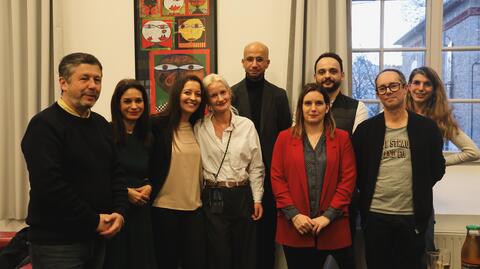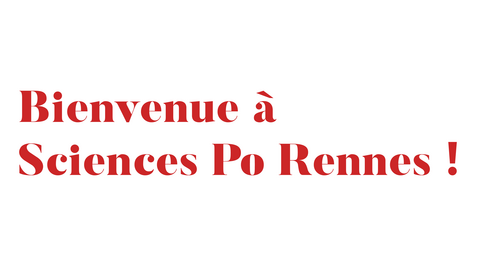The Master’s-level Management and Organizations (MOP) program imparts the cross-cutting strategic and technical skills required for a career in the evolving sector of organization, people and project management.

- Context
- Overview
- Curriculum
- Program format
- Assessment and validation
- Career opportunities
- Admissions
The modernization of an organization is accomplished by transforming managerial practices. Organizations evolve continuously to maintain the agility needed to adapt their value creation, production and growth methods to current challenges in globalization, digitalization and sustainable development.
This ongoing transformation is possible if innovation drives the organization on multiple fronts: in the solutions it develops, its business model, governance, communications and processes. It requires the skilled management of necessary change, based on an intricate, global understanding of the organization and its environment.
This is an apprenticeship learning program.
It takes a cross-cutting approach to exploring the various topics covered in the program:
- the rise of digital technology and the new economic models it makes possible
- the transition to more sustainable models of human development
Target audience:
This degree is one of the two fifth-year programs offered by ECOFI, the economics and finance department of the School of Organization Management of Sciences Po Rennes. It brings together first-time Sciences Po Rennes students, students hosted from other Sciences Po schools and continuing education students (employees enrolled via individual education leave or a company training plan).
The program can accommodate between 15 and (up to) 20 students.
Continuing education students earn a separate diploma upon the successful completion of the program.
The Master’s-level Organization and Project Management (MOP) program is divided into five main modules (UE) on the following topics: Organizations / Projects / Human resources / Innovation / Change
Two interdisciplinary, overarching topics will also be explored: the digitalization of human activities and the transition to more sustainable development.
A fifth module (UE) will accompany students in their apprenticeship and assist them with career planning.
- UE 1 – Strategic Organization Management
Learning objectives: This module familiarizes students with strategy definition and organization structuring, whether for a new activity or to transition an existing organization to a new way of doing things. It analyzes the main functions of organizations from a strategic perspective (human resources are studied in a separate module), as well as their social responsibilities and related challenges. - UE 2 – Project Management: methods and tools
Learning objectives: Students conduct an expert report as an exercise on how to manage complex and/or international projects using digital and other project management methods and tools to manage time, human and financial resources, quality, risks and communication. - UE 3 – Innovation and Change Management
Learning objectives: This module prepares students for a proactive role in the transformation of organizations with an introduction to managing change and innovation in products and services as well as economic models, both internally or via a consulting firm. Students explore tools and techniques in change management by completing case studies and group projects. - UE 4 – Stakeholder Management
Learning objectives: This module prepares students to take on managerial responsibilities in keeping with an organization’s strategies and values, by understanding how to leverage individual and collective performance using things like group learning and supportive management. - UE 5 – Apprenticeship oversight and career planning
The two main objectives of this module (UE) are to:
- Provide support during the apprenticeship in coordination with the student’s employer to ensure a high level of quality in the tasks performed, by establishing extensive connections between what the student learns during the Master’s-level program and the work they perform at the host structure. The second objective is to ensure the production of a well-prepared report that summarizes what the student accomplished at the host organization and provides an introspective review of what was learned in relation to the student’s career plan.
- More generally, this module assists students with career planning, from learning about professions to setting career goals, and provides counselling in public speaking and an introduction to entrepreneurship.
This program is delivered on an alternating, apprenticeship basis from September to June, with one week of classes per month at the Science Po Rennes campus from October to May and two weeks of classes in September and in June. The rest of the program is completed in the form of an apprenticeship contract at a host organization.
At the end of the program, students submit and defend two reports:
- An expertise report, produced during the year in a group. This assignment is based on the study of a real organization and delves into a specific issue in a specific field of expertise, applying the course content and career goals of group members.
- An apprenticeship report produced throughout the year by each student individually. This assignment is a review of the work performed and the knowledge acquired during the apprenticeship.
Fields of expertise and topics in the program are explored using a three-way approach designed by a team of professional experts and research professors based on:
- Theoretical learning
- Experience sharing
- Case studies and practical application
- This Master’s-level program is completed as an apprenticeship: students must work at a company, non-profit organization or public institution for approximately one year over the entire course of the program, which runs from early September to mid-July.
- Class attendance is mandatory unless a written request for exemption is submitted by the organization to the school, or an exceptional leave of absence is authorized.
- Modules cannot be repeated, barring exceptional circumstances (e.g. illness).
This program offers multiple career opportunities and the possibility of upward executive mobility, including:
- Management positions in private or public companies
- Organization consulting
- Project management
- Entrepreneurship
- First-year Master (M1) Incoming students take the entrance exam in fourth year.
- Second-year Master (M2) students must have obtained 240 ECTS credits, equivalent to the first four years of the Sciences Po program.
- Continuing education second-year Master (M2)
Continuing education applicants must have completed a first-year Master’s-level degree (M1). Applicants without a first-year Master’s degree can apply for recognition of previous learning. Applicants must demonstrate that they hold a professional role with a sufficient level of operational and hierarchical responsibilities and have at least five years of relevant experience.
Previous experience abroad (an internship or student exchange program, for example) is encouraged.
The program can accommodate up to 20 students. Admission is based on an application and an interview for qualified applicants.
Second-year Master’s admission:
February 19, 2024 to April 4, 2024: Click here to register and download the application file.
+ The completed application file and supporting documents should be emailed as a single PDF to the address indicated on page 2 of the file.
If your application is accepted, you may be contacted for an interview with the program director(s).




